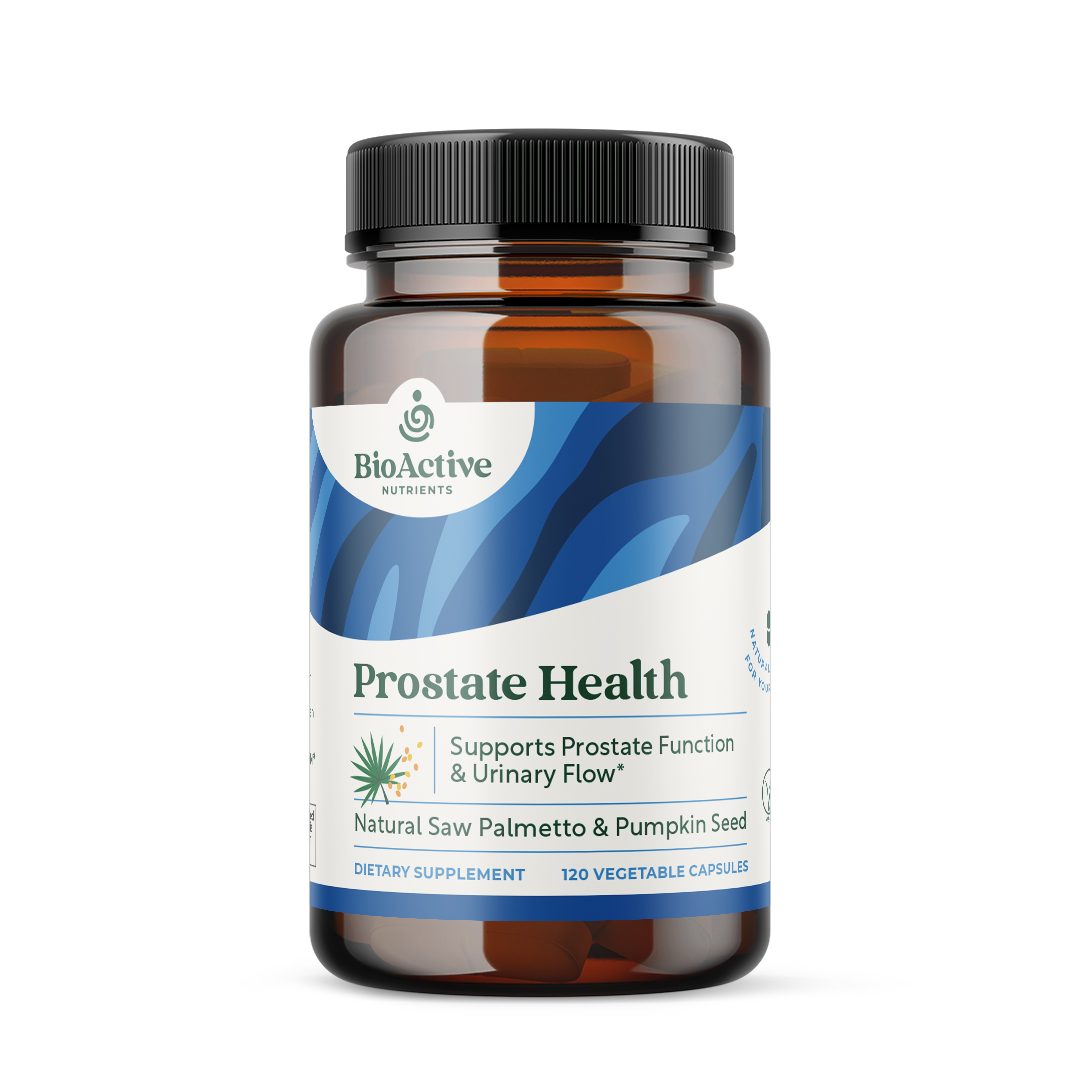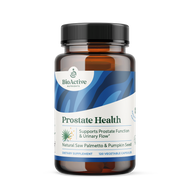Prostate Health Through the Years: Taking Care of Your Body
Posted by BioActive Nutrients on 22nd Jun 2023
Maintaining good health is a lifelong journey, and as men age, one aspect that requires attention is prostate health. The prostate is a small gland located below the bladder that plays a crucial role in male reproductive health. While aging is a natural process, there are steps you can take to support your prostate health throughout the years. In this blog post, we will explore the changes that occur in prostate health as men age and discuss practical ways to care for your body.
Understanding Prostate Health:
Before delving into the tips for maintaining a healthy prostate, let's briefly understand the common issues that can arise with age:
1. Benign Prostatic Hyperplasia (BPH): BPH is a non-cancerous enlargement of the prostate gland, leading to symptoms such as increased urinary frequency, weak urine flow, and difficulty initiating urination.
2. Prostatitis: Prostatitis refers to inflammation of the prostate gland, usually caused by a bacterial infection. Symptoms may include pain in the pelvic area, discomfort during urination, and a frequent urge to urinate.
3. Prostate Cancer: Prostate cancer is the most common cancer among men. It typically develops slowly and may not cause noticeable symptoms in the early stages. Regular screenings and early detection are essential for successful treatment.
Now, let's explore some key strategies that may help maintain prostate health throughout different stages of life:
In Your 20s and 30s:
During this period, establishing healthy habits are crucial for future prostate health:
1. Maintain a balanced diet: Incorporate a variety of fruits, vegetables, whole grains, lean proteins, and healthy fats into your diet. This will aid in you in the consumption of essential nutrients, vitamins, and minerals vital for overall health.
2. Stay physically active: Regular exercise promotes healthy blood flow, supports immune function, and helps manage weight. Aim for at least 150 minutes of moderate-intensity aerobic activity per week, along with strength training exercises.
3. Hydrate adequately: Proper hydration is essential for maintaining optimal prostate health. Aim to drink at least eight glasses of water per day.
In Your 40s and 50s:
As you enter middle age, it becomes even more important to focus on your well-being:
1. Prioritize regular check-ups: Schedule annual check-ups with your healthcare provider to monitor your prostate health and discuss any concerns or symptoms you may be experiencing.
2. Watch your weight: Maintain a healthy weight to help reduce the risk of developing various health conditions. Excess weight may contribute to hormonal imbalances and inflammation.
3. Consume prostate-supportive nutrients: Include foods rich in prostate-supportive nutrients such as lycopene (found in tomatoes), selenium (found in Brazil nuts), and zinc (found in oysters and lean meats) in your diet.
In Your 60s and Beyond:
As you age, it's crucial to remain vigilant and adapt your lifestyle accordingly:
1. Be aware of prostate cancer risks: Discuss with your doctor the benefits and risks of prostate cancer screening, such as the prostate-specific antigen (PSA) test. Individual factors, including family history, may influence the decision to undergo screening.
2. Maintain a heart-healthy lifestyle: Heart health and prostate health often go hand in hand. Following a diet low in saturated fats, exercising regularly, managing stress, and avoiding smoking may help reduce the risk of prostate issues.
3. Consider natural supplements: Explore natural supplements that support prostate health. Products containing saw palmetto, beta-sitosterol, and other beneficial herbs and nutrients may help support prostate health. https://www.bioactivenutrients.com/prostate-healt...

Caring for your body and prioritizing prostate health is a lifelong commitment. By adopting healthy habits, staying active, eating a balanced diet, and being proactive in seeking medical advice, you can help support your prostate health at every stage of life. Remember, regular screenings, open communication with your healthcare provider, and maintaining a healthy lifestyle are essential components of a proactive approach to prostate health. Take charge of your well-being and enjoy a healthy, vibrant life.

